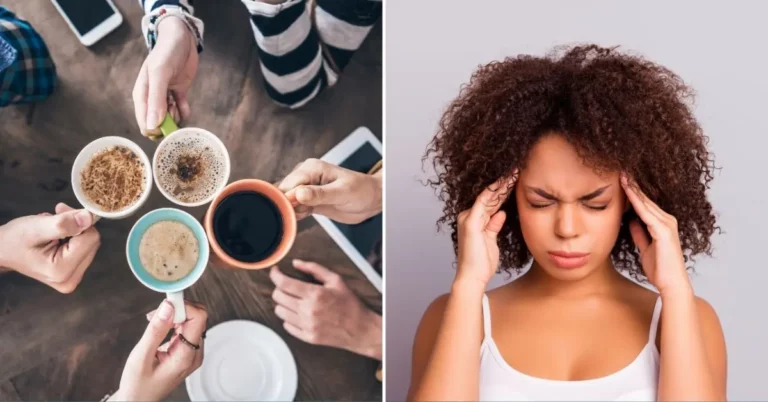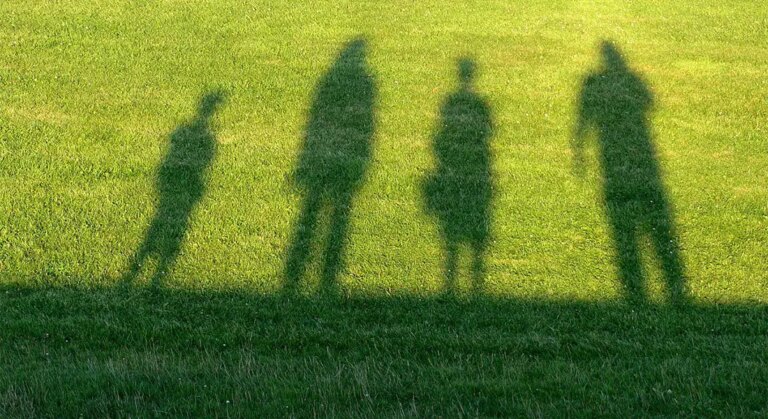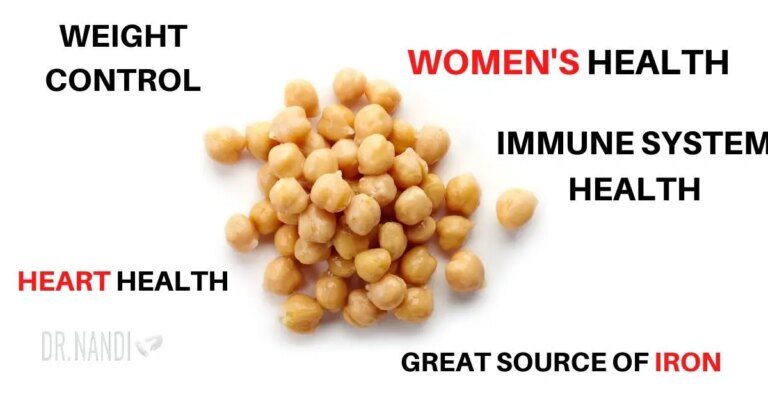Depression is more than just temporarily feeling sad and blue. Depression is a mental health condition that affects a significant percentage of the population.
What Is Depression?
Depression is a mood disorder classified in The Diagnostic and Statistical Manual of Mental Disorders-V (DSM-V). Anxiety disorder is one of the most prevalent mental health issues affecting many of our population. About 16.1 million people in the US have had at least one major depressive episode. During a two-week study, 8.1% of adults over 20 years old experienced some form of depression, according to the Center for Disease Control and Prevention (CDC). Statistics did not include people who did not seek help or those at the risk of having depression but did not quite meet the diagnostic criteria. (1, 2)
This mood disorder can take many forms, and symptoms can differ from person to person. No two people’s experiences are the same. Still, most people experience sadness, a lack of energy, feeling weighed down, fatigue, a sense of hopelessness or loss, and losing pleasure in things they once enjoyed. It can result in lower productivity, lost time, and lack of satisfaction. Depression can affect relationships and even chronic health conditions.
Depression can even become a debilitating condition. Over 80% of adults with depression report difficulty at home, at work, and in social situations. 30% of adults said that their difficulty levels in these activities were moderate to extreme. For some people, depression can get so serious that easy tasks or simply getting out of bed can become a difficult or seemingly impossible chore. (2)
Depression is a mental health condition that can affect your overall well-being, including your physical health. Untreated depression can last for months, years, or a lifetime. It can seriously worsen over time. Seeking treatment can not only stop the progression of the condition but can result in improvements within a few weeks. Prevention, early detection, and proper treatment are the key to recovery.
Types of Depression
According to the DSM-V, there are currently 9 distinct types of depression (3, 4, 5):
- Major depression: Major depression is the most common type of depression. Many people with significant depression experience recurrent episodes of depression throughout their lives.
- Dysthymia: Dysthymia is characterized by a persistently low mood that lasts for an extended period, for many months, a year, or even more. Dysthymia feels like a chronic low mood that many describe as living on autopilot.
- Seasonal Affective Disorder: Seasonal affective disorder (SAD) occurs due to a lack of natural sunlight during the winter months. It happens among people sensitive to lower amounts of light, which is more prevalent in Northern states and countries.
- Atypical depression: Atypical depression is characterized by heaviness in the limbs, irritability, relationship issues, oversleeping, and overeating.
- Bipolar depression: Bipolar depression is also known as Manic Depressive disorder and is characterized by alternating between depressive episodes and mania.
- Psychotic Depression: Psychotic depression episodes are characterized by depressive episodes with hallucinations, delusions, and being catatonic.
- Postpartum depression: Postpartum depression occurs in new mothers after giving birth. It is characterized by a sense of disconnect and sometimes a fear of hurting their babies. Some mothers experience postpartum depression for several months after giving birth.
- Premenstrual Dysphoric Disorder: Premenstrual Dysphoric disorder occurs in the second half of the menstrual cycle, affecting the person’s ability to function normally.
- Situational Depression: Situational depression is a form of depression triggered by a life-changing, sometimes unexpected, event, such as the death of a close family member or losing a job.
Symptoms of Depression
Symptoms of depression may differ from person to person and the type of depression you are experiencing. Symptoms may include (6, 7):
- Feeling sad or “empty.”
- Loss of interest in activities you once enjoyed
- Changes in appetite and eating behaviors’ overeating or not wanting to eat at all
- Weight changes
- Sleep disturbances; lack of sleep or sleeping too much
- Tiredness
- Feelings of hopelessness, guilt, worthlessness, pessimism, and helplessness
- Lack of productivity
- Irritability or restlessness
- Social isolation and feelings of loneliness
- Low self-esteem
- Anxiety and nervousness
- Lack of concentration and memory troubles
- Pains, aches, and physical health issues, including headaches, digestive problems, and cramps
- Thoughts of suicide

Symptoms related to specific types of depression may include:
- Peripartum onset
- Seasonal patterns
- Psychotic features
- Mania
- Catatonia
Depression can look different in different people (6):
- Women: Women have higher rates of depression than men. Biological, hormonal, and life-cycle factors are more likely to affect their experience. Women are more likely to experience sadness, worthlessness, and guilt.
- Men: Men with depression are more like to feel tired, irritable, and angry. They are more likely to have trouble sleeping and lose interest in activities they formerly enjoyed. They are more likely to turn to drugs or alcohol and less likely to seek treatment.
- Older adults: Older adults are most likely to have their symptoms overlooked, have less obvious signs, and admit feelings of sadness, grief, or loss. Their depression is more likely to be attributed to medical conditions, such as heart disease.
- Younger children: Younger children may exhibit symptoms of depression by overly clinging to their parents, pretending to be sick, wanting to skip school, and worrying that their parents may die.
- Older children and teenagers: Older children and teenagers with depression are more likely to be irritable, angry, have trouble with schoolwork, or get into trouble at school. They are more likely to exhibit symptoms of anxiety, eating disorders, and substance abuse, along with depression.
Causes of Depression
There are many possible causes of depression. Causes of depression may include:
- Early childhood trauma
- Genetics, family history, and brain structure
- Stressful or life-changing events, including loss of a loved one, divorce, economic issues, moving, accidents, or the birth of a child
- Medical conditions, including chronic illness, chronic pain, insomnia, attention deficit hyperactivity disorder (ADHD), and anxiety
- History of substance abuse and eating disorders
- History of mental illness
- Experiencing any form of violence or bullying
- Certain medications, such as particular heart and blood pressure medications, hormones, tranquilizers, sedatives, and antibiotics
Diagnosing Depression
The DSM-V has specific criteria for each form of depression. Only your mental health professional, such as a psychiatrist, psychologist, or psychotherapist, can diagnose depression based on your symptoms and psychological evaluation. You may be asked a series of questions regarding your mood, appetite, sleep pattern, activity levels, thoughts, feelings, and well-being. Being open and honest is the best way to receive the correct diagnosis, therefore, the proper treatment. In some instances, your doctor may order blood work to understand if your depression is linked to your physical health, including possible thyroid problems or vitamin D deficiency. (6, 10)
Do not ever ignore any symptoms of depression. Even if you don’t meet the exact criteria of any form of depression, you may be exhibiting specific symptoms and may be at risk of developing depression. Without treatment, your symptoms of depression can get worse and lead to complications.
Complications of untreated depression (11):
- Panic attacks
- Anxiety
- Physical pain
- Weight gain or weight loss
- Relationship problems
- Social isolation and loneliness
- Self-harm
- Alcohol- and drug abuse
- Eating disorders
- Other mental health issues
- Suicidal thoughts and suicide
Treatment for Depression
Traditional treatment methods for depression include therapy, medication, or both. Alternative treatment methods, lifestyle, behavior, and dietary changes may complement these methods. Talk to your mental health care professional to see what options are suitable for you. Finding the proper medication, therapist, alternative, and lifestyle methods may take some trial and error, but it is worth it.
- Medication: Depending on the type of depression and symptoms you are experiencing, your doctor may prescribe certain medications, including antidepressants, anti-anxiety, or antipsychotic medications. (6)
- Psychotherapy: Seeking help from a therapist can help you learn coping skills to deal with negative feelings, thoughts, and life events. It can help with behavior changes, improve your relationships, set healthy boundaries, improve your self-esteem, etc. Therapy can help you understand your reasons behind depression and help release trauma. Cognitive-behavioral therapy (CBT) is one of the most popular forms of therapy for depression, but there are other forms of therapy you may benefit from. Other options include dialectical-behavioral therapy (DBT), mindfulness-based cognitive therapy (MBCT), interpersonal psychotherapy (IP), and other talk therapies. Along with individual therapy, you may benefit from group therapy. Art therapy, music therapy, and drama therapy may also be options. (12, 13, 14, 15, 16, 35)
- Light therapy: Exposure to doses of white light can help to improve your mood and regulate your symptoms. It can be particularly effective for Seasonal Affective Disorder. (17)
- Alternative therapies: Eye Movement Desensitization and Reprocessing (EMDR), Emotional Freedom Technique (EFT), Somatic Experiencing, and Somatic Emotional Release can help release trauma from the body and help with your related symptoms of depression. Acupuncture, craniosacral therapy, meditation, mindfulness, massage, Tai-Chi, and yoga may also help create calm and balance in your mind and body and reduce depression symptoms. (17, 18, 19, 20, 21, 22, 23, 24, 25, 26, 35)
- Nutritional and lifestyle changes: Herbal supplements, including St. John’s Wort, SAMe, and fish or algae oil, can be helpful. Certain supplements, including vitamin D, B12, and zinc, can help reduce symptoms of a nutritional deficit. Removing processed foods and refined sugar from your diet and focusing on whole foods, such as greens, vegetables, fruits, beans, legumes, nuts, and seeds, can be particularly helpful in improving your depression. Avoiding alcohol and drugs can also be helpful. Regular exercise, sleep, and relaxation are also essential in improving your depression. Journaling, relaxation techniques, stress reduction, simplifying your life, joining a support group, and avoiding isolation and time in nature can further help your recovery. (27, 28, 29, 30, 31, 32, 33, 34, 35)

Outlook for Depression
Depression differs from person to person. In some cases, it is temporary; for others, it is a lifelong challenge. While treatment may not make your depression disappear completely, it can help you manage, reduce and even eliminate your symptoms. Seeking treatment, sticking with your recommended treatment plan, and making appropriate lifestyle changes are the best to achieve possible results.
Preventing Depression
- Seek professional help and treatment even at the earliest signs of depression.
- Reach out to friends, family, and people you trust in difficult times.
- Take steps to control your stress levels and practice relaxation techniques.
- Exercise regularly, 20-30 minutes 3-5 days a week.
- Don’t isolate. Find your community and spend time with friends, family, and like-minded individuals.
- Eliminate or lower your intake of refined sugar and processed foods. Eat plenty of greens, vegetables, fruits, legumes, beans, nuts, and seeds.
- Avoid drugs and drink alcohol moderately or don’t drink at all.
- Get enough sleep, 7 – 8 hours a night minimum.
- Spend time in nature. Meditate. Try yoga or Tai-Chi. Practice mindfulness, gratitude, forgiveness, and positive thinking.
- Find a way to express and understand your feelings, thoughts, and experiences. Journaling, writing, art, music, singing, dancing, exercise, or simply talking to others are great.
- Seek professional help, including therapy, coaching, or alternative healing methods to prevent depression.
- Commit to a long-term maintenance plant to prevent relapse of depression. (36, 37)
When to Seek Help from a Mental Health Professional
If you experience any depression, see your mental health professional or doctor.
If you are hesitant to seek help from a doctor or therapist, you may try the following:
- Talk to a friend, family member, pastor, or someone you trust
- Talk to a life coach or alternative health practitioner.
- Call a hotline, including the Substance Abuse and Mental Health Services Administration (SAMHSA) at 1-800-662-HELP (1-800-662-4357), the National Youth Crisis Hotline at 1-800-448-4663, Suicide and Depression Hotline at 1-800-999-9999. You can also text the Crisis Text Line at 741741 or seek online support at 7 cups of Tea (7cups.com). (38)
When to Seek Emergency Help
If you think you may hurt yourself, attempt suicide, or have already acted on a suicide attempt (or know someone who has), immediately call 911 or your local emergency number.
In case of suicidal thoughts, you may consider the following options:
- Call your mental health professional or doctor.
- Call a suicide hotline number. The National Suicide Prevention Lifeline in the US is 1-800-273-TALK (1-800-273-8255). Call the same number for the Veteran Crisis Hotline and press “1”.
- Reach out to someone you trust, a family member, close friend, minister, or member of your community. (36)
If you are experiencing depression, there is nothing to be ashamed or afraid of; you are not alone. The earlier you seek help and receive a diagnosis, the sooner you can find the proper treatment method and feel better. Claim your life back and seek treatment today.
Did you find this article helpful? Comment below; we would love to hear your thoughts, experiences, and questions.

References:
- https://www.nimh.nih.gov/health/statistics/major-depression.shtml
- https://www.cdc.gov/nchs/products/databriefs/db303.htm
- https://www.webmd.com/depression/guide/depression-types
- https://www.psychiatry.org/psychiatrists/practice/dsm?_ga=1.131827143.938127899.1488403495
- https://www.mayoclinic.org/diseases-conditions/depression/diagnosis-treatment/drc-20356013
- https://www.nimh.nih.gov/health/publications/depression/index.shtml#pub1
- https://medlineplus.gov/depression.html
- https://www.webmd.com/depression/guide/causes-depression#1
- https://www.health.harvard.edu/mind-and-mood/what-causes-depression
- https://www.webmd.com/depression/guide/depression-diagnosis
- https://www.mayoclinic.org/diseases-conditions/depression/symptoms-causes/syc-20356007
- http://www.apapracticecentral.org/outreach/depression.pdf
- http://cebmh.warne.ox.ac.uk/csr/mbct.html
- https://onlinelibrary.wiley.com/doi/10.1002/9781118316153.ch7
- https://journals.lww.com/jonmd/Abstract/2008/02000/Adaptation_of_Dialectical_Behavior_Therapy_Skills.8.aspx
- https://link.springer.com/article/10.1007/s00406-004-0542-x
- https://www.mayoclinic.org/tests-procedures/light-therapy/about/pac-20384604
- https://www.tandfonline.com/doi/abs/10.1080/713869628?journalCode=tpsr20
- http://www.emdr.com/what-is-emdr/
- https://www.goodtherapy.org/learn-about-therapy/types/emotional-freedom-technique
- https://traumahealing.org
- http://cochranelibrary-wiley.com/doi/10.1002/14651858.CD004046.pub3/full
- https://search.proquest.com/openview/344413c890b7f879f2e9bd0d71586c18/1?pq-origsite=gscholar&cbl=32528
- https://onlinelibrary.wiley.com/doi/full/10.1002/da.22124
- https://journals.lww.com/practicalpsychiatry/Abstract/2012/07000/Mindfulness_Based_Stress_Reduction,.2.aspx
- https://www.sciencedirect.com/science/article/pii/S096522991200115X
- https://www.webmd.com/vitamins/condition-1143/depression
- https://onlinelibrary.wiley.com/doi/abs/10.1111/j.1753-4887.1997.tb06468.x
- https://www.ncbi.nlm.nih.gov/pmc/articles/PMC2738337/
- https://www.webmd.com/depression/guide/diet-recovery#1
- https://www.health.harvard.edu/blog/diet-and-depression-2018022213309
- https://www.sciencedirect.com/science/article/pii/S0165032717307048
- https://www.sciencedirect.com/science/article/pii/S0165178117301981
- https://www.mayoclinic.org/diseases-conditions/depression/in-depth/depression-and-exercise/art-20046495
- https://www.mayoclinic.org/diseases-conditions/depression/diagnosis-treatment/drc-20356013
- https://www.mayoclinic.org/diseases-conditions/depression/symptoms-causes/syc-20356007
- https://www.webmd.com/depression/understanding-depression-prevention#1
- https://psychcentral.com/lib/telephone-hotlines-and-help-lines


















